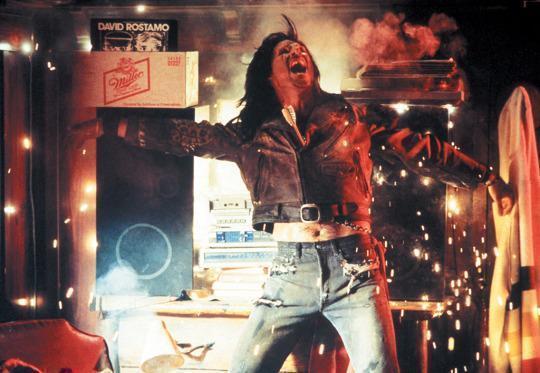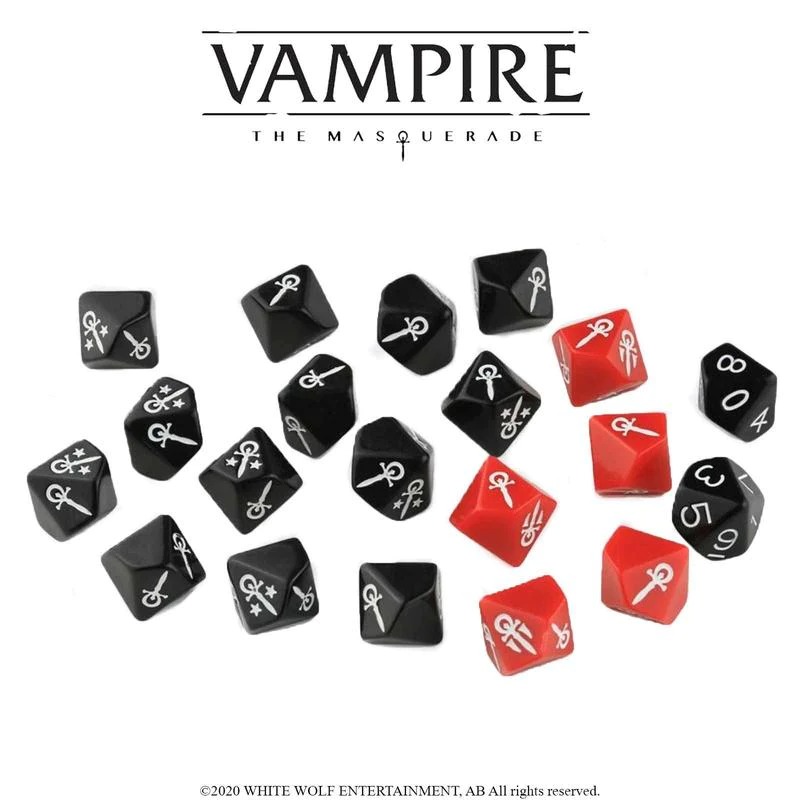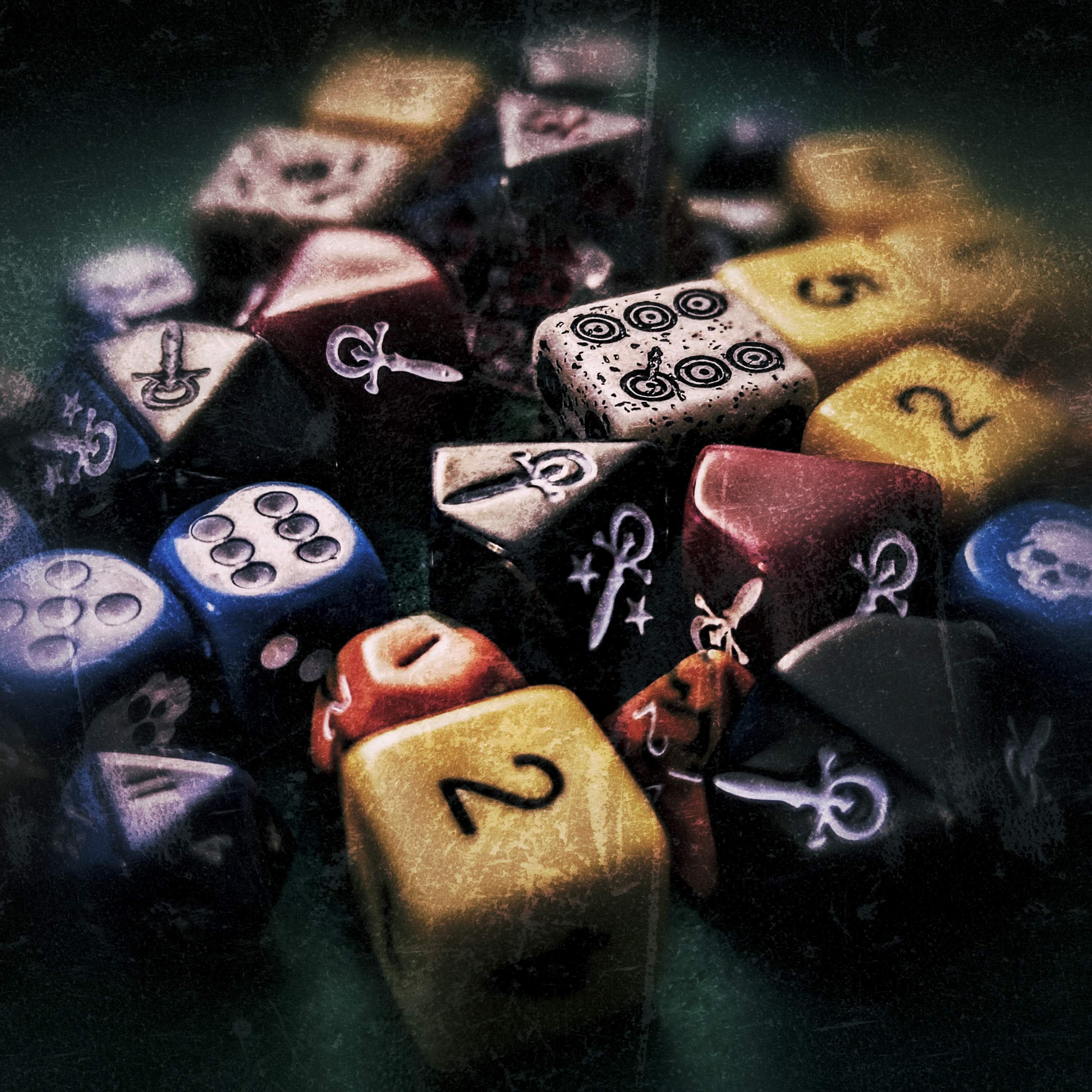
Vampire: the Masquerade is about power. it’s about control. it’s about inequity and unfairness.
vampire is one of the original, possibly the first (citation please*) ‘you are the monster’ games, but what makes the characters in Vampire: the Masquerade monstrous is not that they have to drink blood to survive, nor that they are driven by a bestial thirst, rather that they are abusive, manipulative controllers constantly engaged in an endless battle against their greatest enemy; other vampires.
you can play Vampire: the Masquerade as high intrigue – like Dangerous Liaisons, or low intrigue – like you’re Boris Johnson trying to oust Theresa May. You can play it as high octane action – like a Blade movie, or interpersonal drama – like True Blood.
however you play it, there’s one constant: your character is an asshole. They might know they’re an asshole, they might be reaching for redemption, but at their core they’ve chosen to prey on humanity to extend their unholy existence for just one more night.
one of the choices you get to make, either at character creation or during play or, if you’re lucky, both, is to choose what flavour of asshole you are.
are you Camarilla, and a participant in, perpetuating, a bastard hybrid of capitalism and feudalism? An accomplice to systematic oppression?
are you Anarch, an active opposition to the status quo, raging against the system weighted against anyone not active within it? A member of a disorganised, fractured ideology?
are you an independent, an outcast without a cause surviving night to night, or tied to a small group with a niche interest?
whichever flavour you choose, you’re screwed, because everyone else in your faction or sect is a selfish asshole interested solely in their own power. everyone on ‘your side’ would sell you out in a heartbeat if it progressed them one step forward.
so why exactly would you want to play it?
that’s a good question. the game is about power: power structures, power hierarchies, and the subversion of them. players in Vampire: the Masquerade are empowered to break this status quo, to challenge the established order, to speak truth to power.
player characters in any game should have the ability to drive change, to shake the heavens. Vampire: the Masquerade gives you a reason to do that. it gives you a reason to be angry, pissed off, it makes a compelling case for change, good or bad.
how do you play it?
each character is defined by a set of statements, as is usual in RPGs:
- clan – their Vampiric bloodline, which grants a specific curse (in addition to standard Vampiric condition) and grants some small benefits
- goals – a long term Ambition and a short term Desire, what your character wants to achieve
- predator type – a new addition for V5, how you hunt, and how you feed. This choice grants additional benefits and drawbacks
- attributes – your traditional stats; strength, dexterity, intelligence, charisma etc. These are measured in dots with a minimum of 1 and a maximum of 5
- abilities – skills, knowledge and talents; rated in dots from 0 to 5 and covering stealth, firearms, persuasion, streetwise, medicine, etc
Vampire: the Masquerade is a narrative first game, in that the story takes precedence over the system, so the system has a number of options that allow it to get out of the way and let the story happen. combat can be resolved in one roll, or over the course of several turns. similarly, social manoeuvring can be played out over a whole session or through a straightforward single roll, whichever the pace of the story requires.
all rolls are made using ten sided dice (d10), usually as a pool, although some rolls are made using a single die.

rolls usually test an attribute + ability; dexterity + firearms to fire a gun or manipulation + persuasion to get a guy to do you a solid. any attribute can be paired with any ability, depending on need. you could make an intelligence + firearms roll to learn about a gun, or a dexterity + occult roll to perform the secret handshake just right.
when testing an attribute + ability, you build a dice pool by adding your dot rating in the attribute to your dot rating in the ability, and rolling that many d10s.
a pool of dexterity ⚫⚫⚫ + stealth ⚫⚫ = 5 dice.
once you’ve rolled, you count the number of successes. you normally need two or more successes to pass the test.
on a d10 any result of 6 or higher is counted as a success. a pair of 10s (0 on the d10) are a Critical Success and the successes (2) are doubled (making 4). this makes a pair of 10s equal to four successes.
only pairs count as criticals. this is the part of the dice system that took me the longest to parse.
- 1 ten = 1 success
- 2 tens (a pair) = 4 successes
- 3 tens (pair +1) = 5 successes
- 4 tens (2 pair) = 8 successes
- 5 tens (2 pair +1) = 9 successes
i kept trying to apply a rule to it, but it’s just pairs. Other successes are added to the criticals as normal. a critical success, after all this, just means that you did well. it’s not an automatic success like in D&D.
Vampire: the Masquerade has an additional dice system – Hunger Dice. as a Vampire grows hungry for blood, their beast asserts more control, pushing the vampire into greater acts of violence, dominance, or instinct.
vampire characters record their Hunger on a rating from 0 to 5, and every point of Hunger replaces one normal dice from their pool with a Hunger dice (a different coloured d10).
should a Hunger dice form part of a critical (is part of a pair of 10s), then it’s a Messy Critical, where the beast has pushed the vampire to greater success, but in an uncontrolled and bestial way. this affects the narrative, and often has social or story consequences. there is always a price to pay for a messy critical.
if no successes are rolled, and one or more Hunger Dice roll a 1, then it’s a Bestial Failure. this is bad. the beast has taken control, just for a moment, the Storyteller (the GM in other games) states what has happened. this will always complicate matters.
vampires can use their supernaturally charged blood to fuel powers, called Disciplines, to boost their abilities, to heal themselves, and to enslave mortals.
most of these uses provoke a Rouse Check, a single d10 roll, when the vampire seeks to rouse the power of their blood. a result of 6+ on the dice is a success, as normal. <6, it’s a failure, and the Vampire gains a point of Hunger.
disciplines provide an arsenal of traditional vampiric powers: super speed, strength and resilience, invisibility, mind control, heightened senses, animal control, shape changing, blood sorcery, illusion. disciplines are again rated in dots from 0 to 5.
each discipline is split into separate degrees of mastery and potency, and are individually evocative, providing a sense of cinematic vampire cool, and conveying the game themes.
by concentrating for a moment, a Vampire can increase an attribute by two dots for a single action, providing an unexpected boost of strength, or a flash of insight. this same function can heal gunshot wounds and mend bones.
the classic sensualist vampire trope, the enslavement of a mortal as a servant, a Renfield, is achieved by feeding them a characters’ blood. One drink and they’re hooked, three drinks and they’re a subservient pawn. these ‘ghouls’ then become the mortal instruments of their undead masters.
this last trope is one of the ways that Vampire: the Masquerade is problematic. the game establishes a fiction in which drinking Vampiric blood, or having a vampire drink from you, is a sensual, almost sexual, experience. one of the clans, the Hecata, are cursed so that their bites cause pain, not pleasure.
the game then introduces rules systems and roleplay guidelines for feeding off non-consenting mortals.
which is a bit rapey.
Vampire: the Masquerade is very up front about it being a game for mature adults, that it contains sensitive material, and that some of the subject matter may cause offense or discomfort. the use of safety tools and the clear communication of expectations, boundaries and red lines between players and the Storyteller is highly recommended, if not essential.
it’s also worth noting that Vampire: the Masquerade includes and is influenced by a wide range of cultures, countries, subcultures, scenes, folklore and legend. they don’t always get it right, and have famously gotten it very wrong in the past and right now, at the time of writing, with Werewolf: the Apocalypse 5. so much so that some of the people who wrote the Camarilla and Anarch books don’t write for or work for the game line anymore.
what do you need if I want to play or run Vampire: the Masquerade?
the bare minimum is the core book. after that, the new Players Guide is the most essential, as it expands on the rules within the core book, and collects all the additional clans, mortals and ghoul character creation rules.
you may also want to consider the World of Darkness Expanded Mechanics, a free downloadable PDF of additional rules. i use a cheat sheet from DrivethruRPG, and created a sheet for my players explaining the dice rules and how resources like Health, Hunger, Willpower, and Humanity are recorded and tracked.
summary
in Vampire: the Masquerade you play an undead asshole who has to screw over as many of your supposed allies and friends as possible before they screw you back, harder.
you have access to an arsenal of traditional vampiric powers, are immortal, but have to drink blood to survive, burn in sunlight, and have other legendary weaknesses.
the game is very much for mature (not necessarily ‘older’, although it’s defo 18+) players, and requires a level of empathy and respect between players.
the system is intuitive and easy to learn, and the setting is deep in lore.
*citation: the game Nightfall was released a year before Vampire: the Masquerade, and is rarely credited with originating many of the genre staples. This enrages nerd historians and pedants, like Andy Raff.
Whenever you’re here, you’re alive
The devil says you can do what you like

Leave a comment